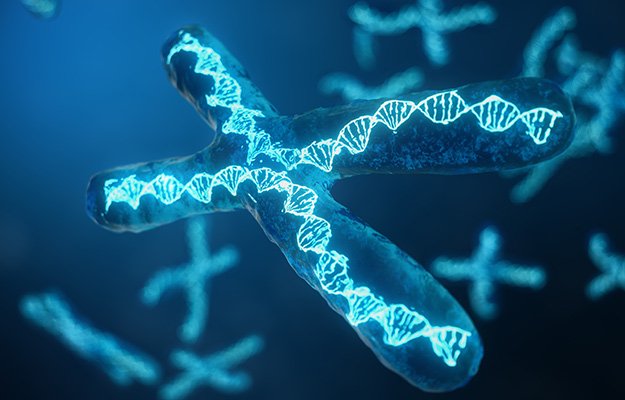
Hormone Health TRT

 Telomere – from the Greek for “end part” – is a region of nucleotide sequences at the end of a chromosome. Its job is to protect the terminal regions of chromosomal DNA against deterioration by differentiating the true end of a DNA string from a double-broken DNA strand.
Simply put, telomeres protect our DNA from damage, including damage that is suspected to play a role in the aging process. Telomeres play a crucial role in the replication of DNA, a process that – without telomeres – would produce DNA copies that are continually diminishing in length.
In our bodies, the enzyme telomerase is most focused and prolific in its work on the telomeres in our egg and sperm cells – telomeres they protect against shortening well into our old age.
Telomerase is less active in the telomeres of other cell types, which allows the gradual shortening of the telomeres in most of our cells throughout our bodies. Studies have shown this shortening of the telomeres to be one of several factors that cause cells to age.
RELATED: Can You Slow Down Aging By Taking Human Growth Hormone Supplements?
Telomere – from the Greek for “end part” – is a region of nucleotide sequences at the end of a chromosome. Its job is to protect the terminal regions of chromosomal DNA against deterioration by differentiating the true end of a DNA string from a double-broken DNA strand.
Simply put, telomeres protect our DNA from damage, including damage that is suspected to play a role in the aging process. Telomeres play a crucial role in the replication of DNA, a process that – without telomeres – would produce DNA copies that are continually diminishing in length.
In our bodies, the enzyme telomerase is most focused and prolific in its work on the telomeres in our egg and sperm cells – telomeres they protect against shortening well into our old age.
Telomerase is less active in the telomeres of other cell types, which allows the gradual shortening of the telomeres in most of our cells throughout our bodies. Studies have shown this shortening of the telomeres to be one of several factors that cause cells to age.
RELATED: Can You Slow Down Aging By Taking Human Growth Hormone Supplements?
 When our bodies replicate our DNA, small segments of the DNA at the ends are unable to be copied and are lost. After enough repetitions of the dividing process, the telomeres reach a length at which they can no longer facilitate any further replications, rendering the cell incapable of self-repair and destined to die. This point is known as the Hayflick Limit – the point at which a cell can no longer replicate or repair itself.
Comparing human cells with cells from other living organisms has revealed that cellular replicative capacity may correlate primarily to species lifespan. Because of this, the inability to replicate cells on an ongoing basis is likely a primary cause of aging in our bodies.
In addition to telomere length, the structure of a telomere is also crucial to its functioning. Soundly functioning telomeres end tuck underneath to stay protected. When the tucked end comes unwrapped, the end is exposed which alerts your DNA repair system that a cell is “broken”, which is how your system interprets that loose end. This alert stops cell division and likely renders the cell senescent, meaning that it is basically waiting to die.
In addition, studies have shown that older people with shorter telomeres have a three to eight times higher risk of heart disease and other infectious diseases.
There is a lot to think about – we understand. If you have questions about telomeres, aging, or any of the conditions discussed here, connecting with a doctor in a discrete setting has never been easier.
When our bodies replicate our DNA, small segments of the DNA at the ends are unable to be copied and are lost. After enough repetitions of the dividing process, the telomeres reach a length at which they can no longer facilitate any further replications, rendering the cell incapable of self-repair and destined to die. This point is known as the Hayflick Limit – the point at which a cell can no longer replicate or repair itself.
Comparing human cells with cells from other living organisms has revealed that cellular replicative capacity may correlate primarily to species lifespan. Because of this, the inability to replicate cells on an ongoing basis is likely a primary cause of aging in our bodies.
In addition to telomere length, the structure of a telomere is also crucial to its functioning. Soundly functioning telomeres end tuck underneath to stay protected. When the tucked end comes unwrapped, the end is exposed which alerts your DNA repair system that a cell is “broken”, which is how your system interprets that loose end. This alert stops cell division and likely renders the cell senescent, meaning that it is basically waiting to die.
In addition, studies have shown that older people with shorter telomeres have a three to eight times higher risk of heart disease and other infectious diseases.
There is a lot to think about – we understand. If you have questions about telomeres, aging, or any of the conditions discussed here, connecting with a doctor in a discrete setting has never been easier.
Interested in learning about biological age? Find out more from Opt Health!
Opt Health is a telehealth platform that reconnects men with wellness, fitness, strength, and sexual vitality through scientific preventive medicine. From your own home, you can schedule with a physician, meet one-on-one via video conference, receive test results, and have medications delivered to your door. For questions, inquiries, or appointments, don’t hesitate to contact us. Get personalized support and insight from top-tier physicians available 24/7. Up Next:Your health, your terms. Discover how personalized care can transform not just the way you feel, but how you live.